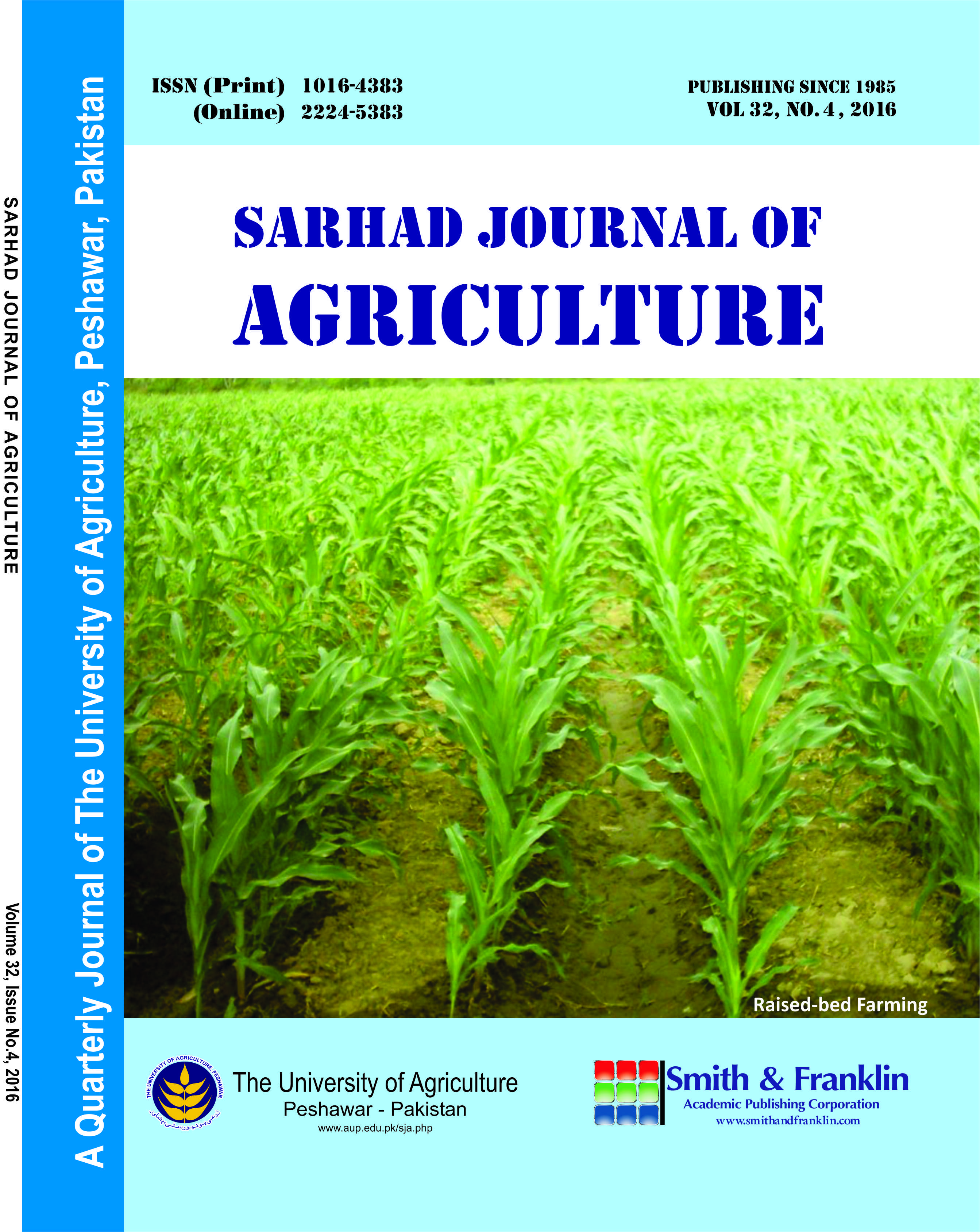Constraints in Accessing Agricultural Extension Services by Rural Women: Evidence from Khyber Pakhtunkhwa, Pakistan
Mehnaz Safdar and Urooba Pervaiz*
ABSTRACT
The present study was conducted in Khyber Pakhtunkhwa, Pakistan where three districts (Bannu, Swabi and Swat) were randomly selected with the objectives to investigate the information sources of women farmers and constraints they were facing in carrying out agricultural operations, 128 women respondents from each district were randomly selected and interviewed through pre-designed interview schedule in 2018. Results indicated that 47% respondents were in middle age category (31-40 years), 59% were illiterate, 91% women respondents were married and 75% households were headed by male. It was observed that local famers/colleagues were the main source of information for 41 % respondents, while no female extension worker was available to be accessed for taking agricultural information. Only 14% respondents attended trainings. This situation is very alarming and shows negligence of extension department. These trainings were provided by various NGOs and private organizations. Those women who got trainings were more updated than those who did not attend or had no access to trainings. Chi-square analysis revealed that age had significant association with involvement in decision making. It means that by increasing age of the respondents, the tendency towards involvement in decision-making increases. Literacy had non-significant association with decision making and training attended. Similarly, various barriers were identified having significant impact on the probability to attend trainings. Results indicated that women extensively felt the need and interest for trainings. The study concluded that women farmers’ access to agricultural extension services are very limited, very less extension trainings were arranged for women farming community hindering women in getting desirable field production. Various cultural constraints i.e. pardah, language barrier, and mobility had negative impact on farming operations. It is recommended there is dire need to establish female extension staff. Government should provide basic trainings and subsidized inputs to women in the study area.
To share on other social networks, click on any share button. What are these?







